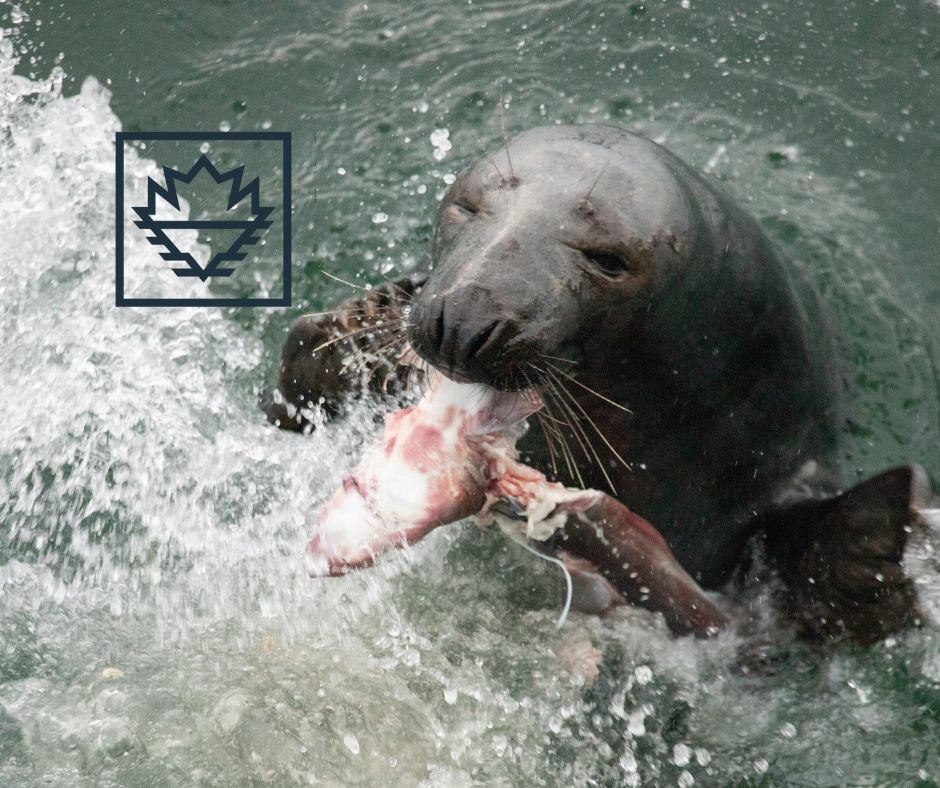Please click the link below to listen to this inspiring radio interview about the Senate report titled “Sealing the Future: A Call to Action”. The interview begins at 21:40.

Here’s the transcript of the podcast between Todd Veinotte and Doug Chiasson discussing the Senate report.
Todd Veinotte: Welcome back. Today we’re discussing a story featured on the CBC website about a Senate committee report titled “Sealing the Future: A Call to Action.” This report makes recommendations to better manage seal populations and revitalize the seal products industry. Joining us is Doug Chiasson, Executive Director of the Sealing Institute of Canada. Doug, thanks for being here.
Doug Chiasson: Thanks for having me, Todd.
Todd: So, the Senate committee’s 80-page report aims to improve seal population management and revive the struggling seal products industry. Is it too late for this revival?
Doug: I don’t think it’s too late, Todd. We’re close to the tipping point, but there’s still time. There’s a wealth of knowledge among the older generation of sealers that we need to pass on to younger people. We need to involve folks in their 20s, 30s, and 40s to learn from those who’ve been doing this for 50 or 60 years.
Todd: What are some notable recommendations from the report?
Doug: The report has nine recommendations, focusing on combating misinformation about the Canadian seal harvest. Many people wrongly believe seals are endangered, which they’re not. Eastern Canada has the world’s largest population of grey and harp seals. There’s also a misconception that we still hunt baby whitecoat seals, which hasn’t been the case since 1987. Educating the public is crucial to changing these outdated perceptions.
Todd: Images and campaigns, like those from Paul McCartney and Brigitte Bardot, have left lasting impressions. How do you combat the influence of celebrity activism?
Doug: It’s challenging, but we have truth on our side. Younger generations—Gen Z, Millennials, and Gen Alpha—are more open to using seal products. They view them as sustainable and humane compared to synthetic alternatives or products from unsustainable fisheries. They weren’t around for the celebrity campaigns of the past, so they see seal products differently.
Todd: What about import bans? Where do things stand?
Doug: We face import bans in several countries, including the US and the European Union. However, the EU is reviewing its ban this year, considering its socio-economic and ecological impacts. Seal predation is a significant issue, with six species on the Species at Risk Act list citing seals as a major impediment to population recovery.
Todd: Can you explain the process for hunting seals and addressing concerns about humane practices?
Doug: The hunting process is designed by international veterinary experts and follows a three-step method to ensure humane dispatch. Most seals are harvested using rifles, not the methods seen in controversial images from decades ago. This process ensures animals are dispatched humanely before they’re harvested.
Todd: This Senate committee support seems significant. Could we have envisioned this progress 10 years ago?
Doug: It’s definitely encouraging. This report, along with a similar study by the House of Commons fisheries committee, highlights actionable steps the government can take. The emphasis is on collaboration with industry players, fisheries, and indigenous communities to advance the seal harvest sustainably.
Todd: The debate around humane slaughter is often hypocritical when compared to other industries, like beef or poultry, which aren’t subjected to the same scrutiny.
Doug: Absolutely. The key difference is visibility. Slaughterhouses aren’t open to public view, whereas sealers often work under the scrutiny of helicopters and cameras. The public needs to understand the dangers sealers face and the importance of this industry for rural and remote coastal communities. Large, unchecked seal populations can disrupt the ecological balance, especially as we deal with climate change.
Todd: It feels like perceptions are shifting. Is the pendulum swinging in your favor?
Doug: We believe so. If the government acts on these recommendations and collaborates effectively, we could see a resurgence in the Canadian seal harvest. We hope other countries will recognize the sustainability and humanity of our practices and lift their bans. There’s interest from consumers abroad, particularly in the US, who are currently unable to purchase Canadian seal products due to these restrictions.
Todd: Doug, thank you for the insightful conversation. We appreciate your time.
Doug: Thank you, Todd.



